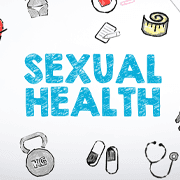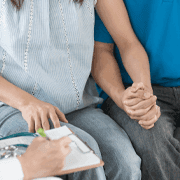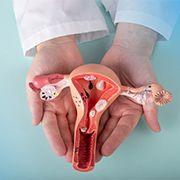Understanding STDs: Symptoms, Causes, Treatment, and Prevention
In This Article
Understanding STDs: Symptoms, Causes, Treatment, and Prevention
Dr. Sameena
Updated on February 13, 2025
Medically verified by Dr. Pournami
Fact checked by Dr. Arya

Wellness
6 min read
Are you looking to understand what STDs are, or trying to identify the symptoms? Curious to know what causes STDs and how to treat and prevent them? You’re in the right place.
Karepedia is here to simplify the causes of different types of STDs, its symptoms, treatments, and preventive measures.
What are STDs?
Let’s do a quick recap of what STDs are. They are infections that are mostly spread through sexual activity, including vaginal, oral, and anal sex, through close personal contact, such as kissing, or from a mother to an unborn child.
Causes of Transmission
You may wonder how STDs are transmitted? It is crucial for you to know, not just because knowing the signs help you to be more cautious, but also because the mode of transmission is an important determinant of the kind of treatment you must receive.
Here’s how STDs are transmitted.
- Unprotected sexual contact, including vaginal, anal, or oral sex.
- -Having multiple sexual partners.
- Engaging in unprotected sex
- Not getting regular screenings
Identifying the Signs
Common signs are genital sores, pain or burning during urination, unusual discharge, itching, and rash.
However, many STDs can also be asymptomatic, making regular testing crucial for early detection.
Common STDs And Causes
| STDs* | *Causes |
| ------ | -------- |
| Chlamydia | Bacterial infection (Chlamydia trachomatis) |
| Gonorrhea | Bacterial infection (Neisseria gonorrhoeae) |
| Syphilis | Bacterial infection (Treponema pallidum) |
| HIV/AIDS Viral Infection |
| Herpes | Virus (HSV-1 and HSV-2) |
| HPV | Virus (Various strains) |
Treating STDs
Bacterial infections can often be treated with antibiotics.
Viral infections may require antiviral medications to control symptoms and manage the progression of the disease.
Early detection and intervention reduces the complications.
| STD Type* | *Common Treatment Approaches |
| ------ | -------- |
| Bacterial Infections | Antibiotics prescribed by a healthcare professional. |
| Viral Infections | Antiviral medications; some viral infections are managed but not completely cured. |
| Parasitic Infections | Antiparasitic medications; treatment may vary based on the specific parasite causing the infection. |
| Protozoal Infections | Antibiotics or antiparasitic medications; treatment varies based on the type of protozoa causing the infection. |
| Fungal Infections | Antifungal medications; treatment depends on the type of fungus causing the infection. |
| Combination Infections | Combination of medications targeting different microorganisms causing the infection. |
| Symptomatic Relief | Medications to alleviate symptoms (e.g., pain relievers, anti-inflammatory drugs). |
| Partner Treatment | In some cases, treatment may involve treating sexual partners to prevent reinfection and transmission. |
| Follow-up Testing | Follow-up tests to confirm the effectiveness of treatment and ensure eradication of the infection. |
| Preventive Measures | Counseling on safer sex practices and the importance of regular screenings for prevention. |
 10mint
10mintSexual Health Matters: How To Maintain Your Sexual Health ?
 10mint
10mintYour Guide to Sexual Health Screening and Preventive Measures
 10 mints
10 mintsSTDs in Women: Comprehensive Guide on Symptoms and Treatments
Get a Callback Now
Prevention of STDs
Preventing STDs involves a combination of strategies, including:
- Safe Sexual Practices like correct and consistent use of condoms
- Vaccination against viral causes
- Regular Screening and Testing: for sexually active and those with multiple sexual partners
- Open and honest Communication with sexual partners about sexual health,history, testing, and prevention for maintaining a healthy sexual relationship.
- Limiting the number of Sexual Partners and with a partner who has been tested for STDs
- Health Education and Awareness: Stay informed about STDs, their symptoms, and prevention methods. Educate yourself and others.
- Pre-Exposure Prophylaxis like HIV Prevention: For individuals at high risk of HIV infection, pre-exposure prophylaxis involves taking a medication to reduce the risk of contracting the virus.
- Avoiding Risky Behaviors like Intravenous Drug Use: Avoid sharing needles or syringes to prevent the transmission of bloodborne infections
- Routine Healthcare Visits: Schedule routine healthcare visits,gynecological exams for women and monitoring
- Treatment of Infected Partners: If one partner is diagnosed with an STD, prompt treatment is essential. Both partners should complete the prescribed treatment to prevent re-infection.
Early Detection Matters: Many STDs show no symptoms, regular screening is important for sexually active individuals.
Safe sexual Practices Reduce Risks: Consistent use of condoms and other safe sex practices can lower the risk of contracting or spreading STDs.
Vaccination is Prevention: Vaccination against specific STDs is a powerful preventive measure.
Source Links
Centers for Disease Control and Prevention

